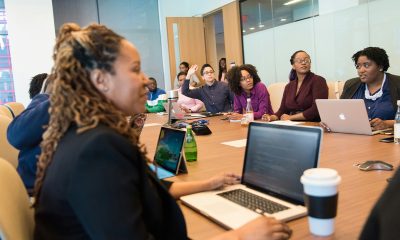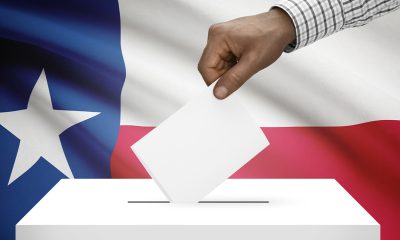Advice
COMMENTARY: Roe v Wade – Considerations for the Black Community
Within the Black community, we have historically accepted the downtrodden and nurtured our own. Share your stories with your daughters and sons (dads too). Talk to them let them know you love them unconditionally. This does many things. First, it increases their self-worth and decreases the likelihood of unintentional pregnancy. This also increases the likelihood they will come to you if something happens. This also increases the likelihood they will not try to end an unintentional pregnancy on their own or through a backdoor illegal abortion, as did so many from my generation.
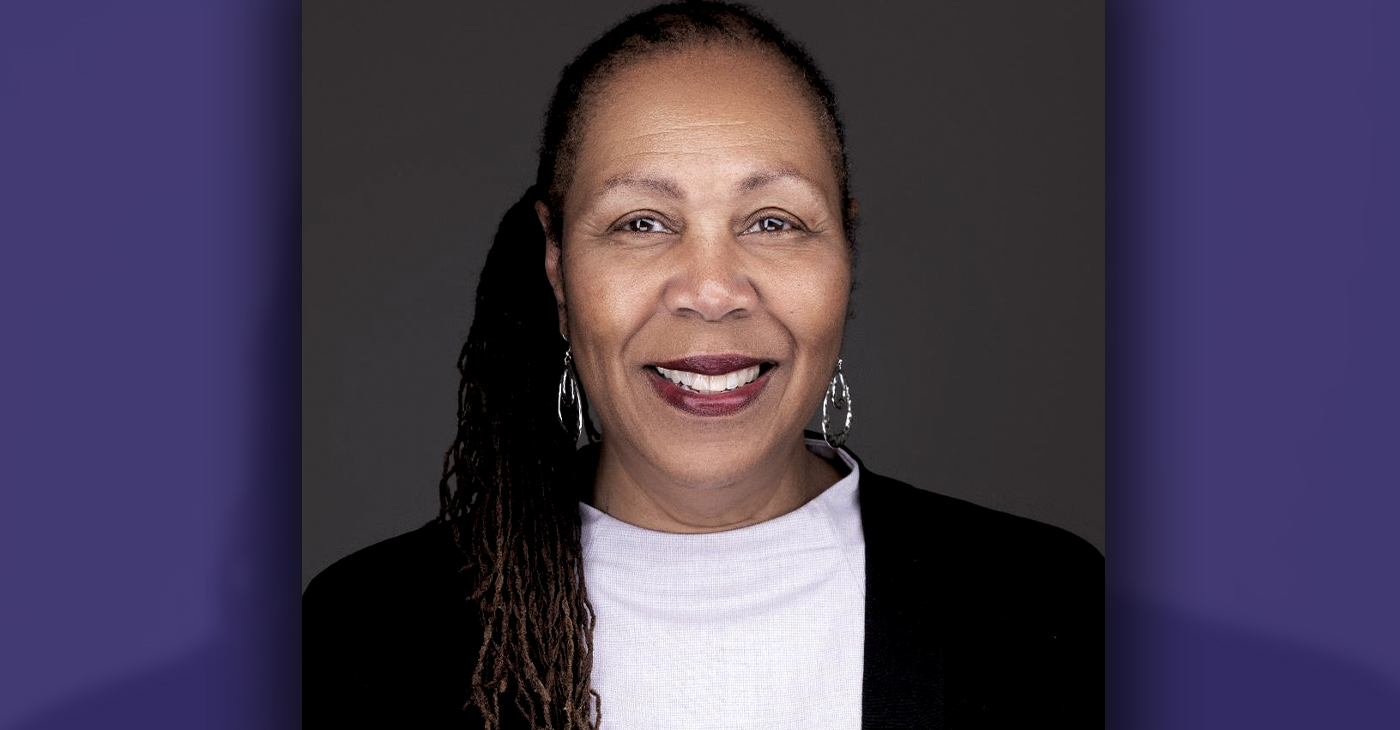
By Lorna Kendrick, PhD
This article is dedicated to all women and their loved ones who have suffered silently because of biases towards female reproductive choice. As we as a community ponder Roe v Wade, we must pause and consider this is not simply about abortion. This is about human rights not politics or societal dogmatism, equity for those most vulnerable and at risk, and freedom for all, not just for an elitist few.
During my doctoral education in the early 1990’s the buzzword or answer to achieving health equity for Black America was “access” to care. Data showed, with access we could change the poorer outcomes we were seeing in our communities. As a woman and as a researcher who has dedicated my entire career to improving care for all, in particular my community, I am beyond outraged when I think about the decision to overturn Roe v Wade, a decision never steeped in data only personal beliefs and opinion. Frederick Douglass once said, “I expose slavery to this country, because to expose it is to kill it.” I hope my words on this page expose this new form of slavery, hatred, and destruction of our community, through the overturning of laws and redistricting of voting lines, helps support efforts to “kill it.”
I am outraged. There are groups and individuals determined to deny the rights and freedoms of others and force their beliefs on the populous of this nation. How did we become a nation where, if you believe something, I too must believe exactly as you? How can I support a nation where one of my loved ones was gang raped in the military and was forced (pre-Roe v Wade) to have the child? A nation where she never received needed resources to support, nurture, or help her heal from the trauma. This healing did not happen, because it is just too taboo of a subject to acknowledge in our perfect society where she, as a woman of color, is invisible and not as valued. Many of these women often live out their entire lives both reliving the trauma and navigating a life of poverty unable to provide for her child/children.
Sadly, a growing part of our society has demonized those seeking abortion in such a way, although legal, this choice continues to wreak havoc in the minds of women and others. Some in our society posit an inaccurate ideology where women are viewed as choosing abortion as if they were ordering a cup of coffee, with little to no mental or emotional struggle. As a nurse with years of experience and as a therapist and researcher in the area of mental wellness, I can emphatically say, women I have seen in my practice have struggled a lifetime with their decisions. Their mental and emotional wellbeing suffered because they were indoctrinated by our society to believe they were awful human beings for making this kind of decision. They bought into the belief that the most important part of being a woman was to bring life into the world and if they chose not to, they were the scum of the earth and doomed to eternal death.
Within the Black community, we have historically accepted the downtrodden and nurtured our own. Share your stories with your daughters and sons (dads too). Talk to them let them know you love them unconditionally. This does many things. First, it increases their self-worth and decreases the likelihood of unintentional pregnancy. This also increases the likelihood they will come to you if something happens. This also increases the likelihood they will not try to end an unintentional pregnancy on their own or through a backdoor illegal abortion, as did so many from my generation.
Prevention coupled with love and acceptance can be the saving grace of our powerful Black community. We know the strength of grassroots efforts. Let us begin to take control of our own future and stop waiting for society to help us turn the tide. This is a time for action, not silence.
Lorna Kendrick Ph.D is currently serving as Dean of the Samuel Merritt University College of Nursing. She is the first Dean of Color in their 113-year history. She also served as President-elect for the California Association of Colleges of Nursing (CACN), and worked for many years in neuro/surgical ICU and as an Advanced Practice Child/Adolescent Psychiatric Mental Health Clinical Nurse Specialist, while maintaining a small private practice.
Editor’s note:
In the June 29, edition of the Post in Dr. Martha Taylor’s article on “Roe v. Wade-A Divided Nation,” she advised the community of readers to respond by going to the polls in local areas and voting for people who will support your choices and beliefs because they will determine the outcomes in your states. Dr. Martha Taylor has invited guest contributors and experts to submit articles, opinions and advice for publication.
The Post News Group will publish articles that will discuss the fallout from the reversal of Roe v Wade. Professionals will be invited to discuss, the theology, sociology, political, and medical impact from the Roe v Wade abortion reversal. In the meantime, Dr. Taylor is asking the readers to continue to pray for Brittany Griner who has just pled guilty and remains incarcerated in a Russian prison.
Activism
Leading with Action, Love and Data Points: Six Questions for the California Black Women’s Collective
“Black Women in California have always had to be active participants in the labor market, but this report showcases the need for fair and just wages even for those of us with higher educational attainment,” said Kellie Todd-Griffin, President and Chief Executive Officer of the California Black Women’s Collective.
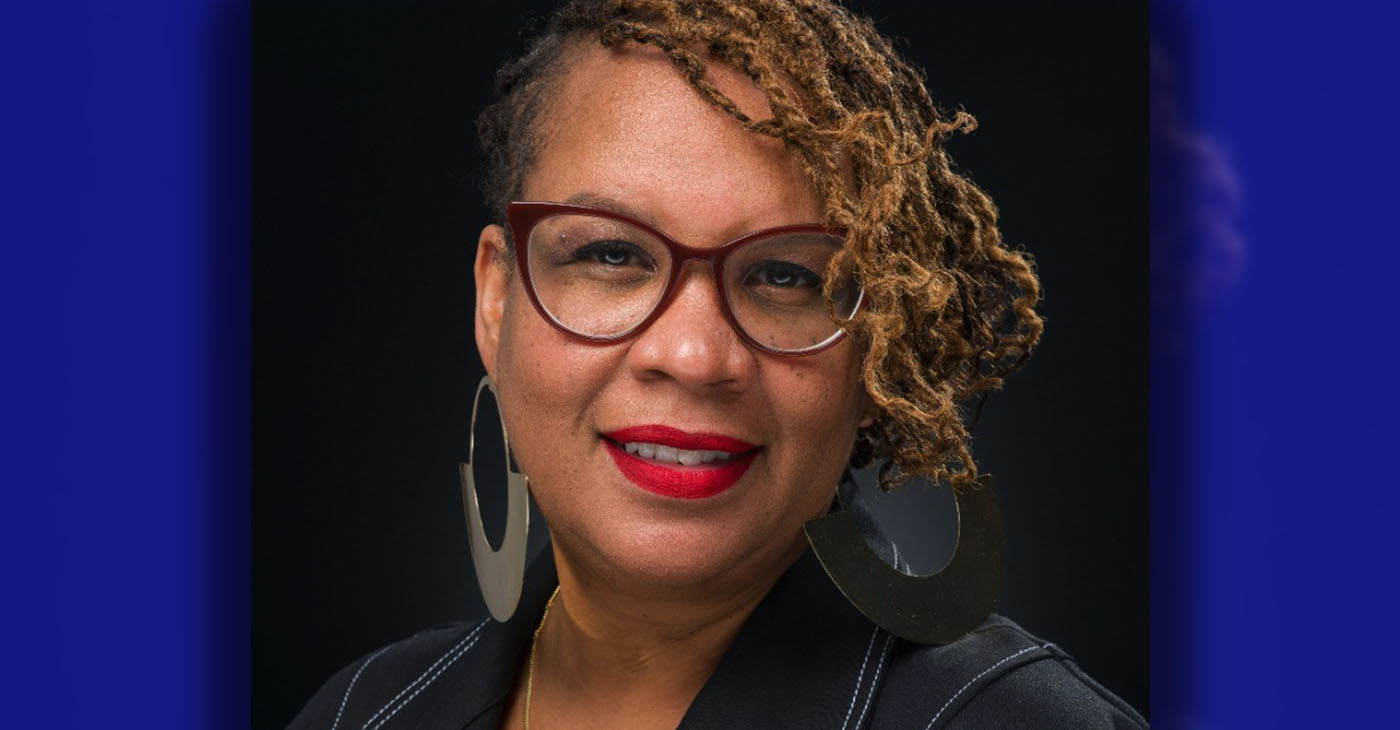
By Edward Henderson | California Black Media
The California Black Women’s Collective (CABWC) is a sisterhood of women from different professional backgrounds aiming to uplift and address the issues impacting Black women and girls in the state. They approach problem-solving with a range of expertise — from politics, business, and community advocacy to the arts, entertainment, social justice activism, and more.
Earlier this month, the organization released a wage report focused on Black women’s earnings in California titled “Pay Me What I am Worth.”
“Black Women in California have always had to be active participants in the labor market, but this report showcases the need for fair and just wages even for those of us with higher educational attainment,” said Kellie Todd-Griffin, President and Chief Executive Officer of the California Black Women’s Collective.
“Black Women in California wages are below the state mean wage and make less than most of their female counterparts in every category,” continued Todd-Griffin. “We must take action now.”
CABWC’s Black Girl Joy Festival is an event designed to uplift Black Women and Girls in a safe space while learning and having fun. The festival includes free workshops that prepare women for college, dancing, self-defense training, health screenings, yoga, arts & crafts, and food vendors.
The Collective’s Empowerment Institute, launched in collaboration with the Los Angeles-based research firm EVITARUS, produces the annual California Black Women’s Quality of Life Survey.
California Black Media spoke with Todd-Griffin about the organization’s impact, challenges it faces and some of its near-term plans.
What does your organization do to improve the lives of Black people in California?
The California Black Women’s Collective Empowerment Institute’s uplifts the issues and voices of Black Women and Girls in California through our programming. That includes the Black Women’s Worker Initiative that helps Black Women prepare for public section and non-traditional careers. Other initiatives are the CA Black Women’s Leadership Development Certificate program at CSU Dominguez Hills; Black Girl Joy Festival for middle and high school students; Conversations for Black Women, etc. Our targeted research also uncovers solutions to the toughest challenges Black women and girls face.
What was your greatest success over the course of the last year?
We released the first-ever California Black Women’s Quality of Life Survey. This study collected insights from 1,258 Black women voters across California to understand their economic state, most pressing concerns, their attitudes toward policymakers, and their experiences and issues in California.
In your view, what is the biggest challenge Black Californians face?
Black Californians, especially Black Women, continue to be left out of the conversation when it comes to building meaningful change to improve the lives of those who struggle the most.
What was your organization’s biggest challenge?
Our biggest challenge over the last year was transitioning from a volunteer driven entity, the California Black Women’s Collective, to creating a non-profit organization, the California Black Women’s Collective Empowerment Institute.
Does your organization support or plan to get involved in the push for reparations in California?
Absolutely!
How can more Californians of all backgrounds get involved in the work you’re doing?
We are on all the social media channels. They can also visit our website, www.CABlackWomensCollective.org.
Activism
The Silent Struggle of Pregnancy Loss
It is a tragedy that Black women’s odds of pregnancy loss are much higher than the general population. It’s even more tragic that there is a Black woman reading this article who has experienced pregnancy loss and has suffered in silence. There are an array of feelings associated with pregnancy loss, and women often feel alone and isolated in these feelings believing that no one understands what they are going through.
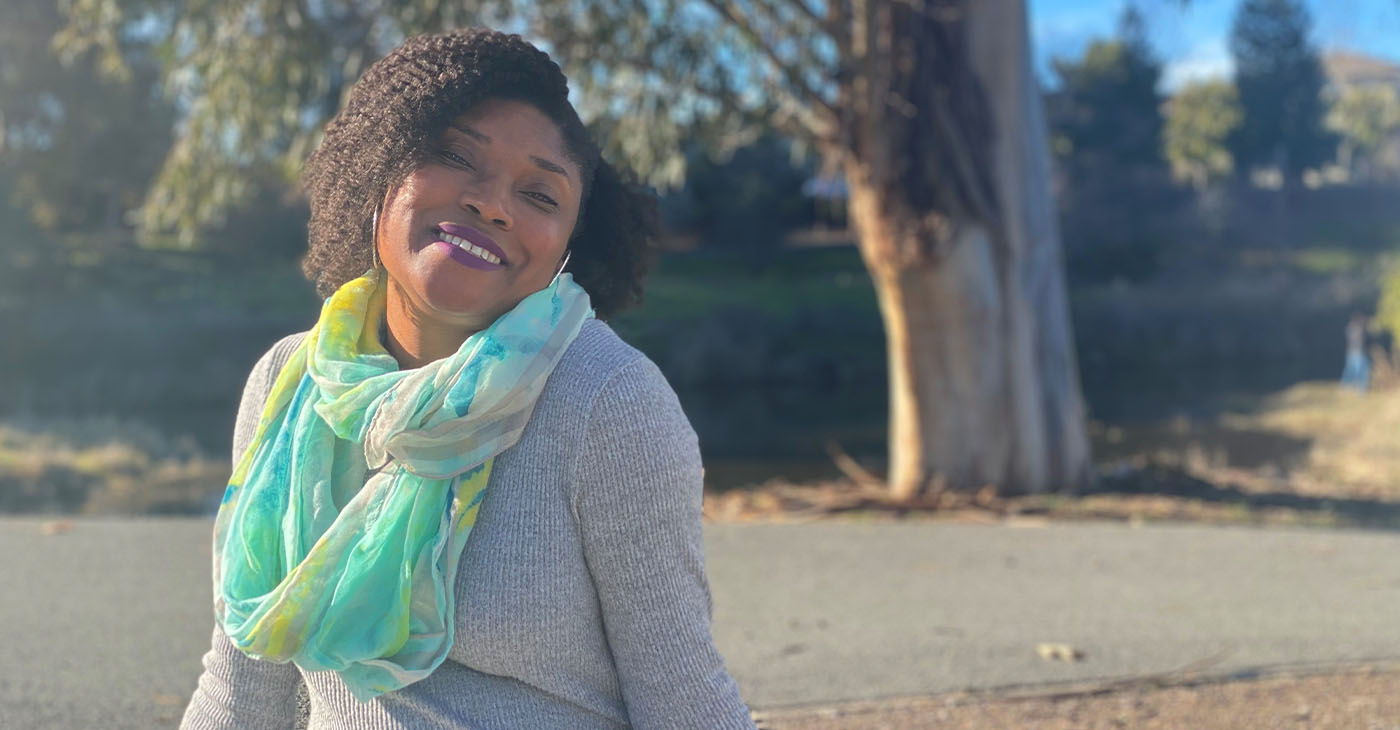
By Narissa Harris, LMFT
The topic and contents of this article may be difficult for some readers. Yet, it is of paramount importance to shed light on the silent struggle of pregnancy loss experienced by countless women.
During the holiday season, we often assume everyone is in a festive, happy mood. However, this time of year is filled with mixed emotions and can be especially difficult for Black women, who are 2-3 times more likely to experience a pregnancy loss compared to other women. Pregnancy loss (the death of an unborn baby/fetus during pregnancy) is experienced by 10-15% of women and doubles to 20-30% for Black women. Additionally, Black women are 3 times more likely to have a stillbirth in comparison to other women.
It is a tragedy that Black women’s odds of pregnancy loss are much higher than the general population. It’s even more tragic that there is a Black woman reading this article who has experienced pregnancy loss and has suffered in silence. There are an array of feelings associated with pregnancy loss, and women often feel alone and isolated in these feelings, believing that no one understands what they are going through.
Whether you are aware that someone has experienced pregnancy loss, or you have experienced pregnancy loss yourself, we must be sensitive and supportive to the women in our lives during this time of year. I encourage the following:
#1 – Don’t ask a woman about her uterus!
Yes, I know this is blunt and harsh, but it is important to be mindful of the trauma that may be triggered when asking a woman when she plans to have a baby. I will never forget being at a holiday party when a family member asked me when I was planning on having kids, unaware that I experienced my 3rd pregnancy loss just 6 weeks prior. It was triggering, upsetting, and annoying. While my husband and I were eventually blessed with 2 healthy children, I share my experience to reiterate the immediate and long-term harm caused by these types of invasive inquiries.
#2 – Connect with a supportive community!
If you are someone who has experienced a pregnancy loss or know a woman who has, it is vital to connect with a safe and supportive community even when everything is telling you (or that woman) to isolate. While no one in the chapter knew that I was dealing with pregnancy loss at the time, my connection with the Bay Area Chapter of the Association of Black Psychologists (Bay-ABPsi) served as a healing and uplifting space for my grief/loss. I learned from Baba Dr. Wade Nobles, who describes babies as divine and the closest beings to God. I want you to remember that connecting with our spiritual community and ancestors can offer healing and support.
#3 – Never lose hope!
To the women who have experienced pregnancy loss, it’s easy to believe that a successful pregnancy will not happen but keep the hope. Take the time you need to grieve and release the baby (or babies), allowing your womb to heal. View the lost pregnancy in terms of a spirit with a Divine purpose, even if it was short-lived, with you being the vessel for that Divine purpose. Believe and prepare for your baby, who will survive and succeed beyond the womb to fulfill their Divine purpose!
Bay ABPsi is a healing resource committed to providing the Post Newspaper readership with monthly discussions about critical issues in Black Mental Health. Readers are welcome to contact us at bayareaabpsi@gmail.com and join us at our monthly chapter meetings every 3rd Saturday via Zoom.
Advice
BOOK REVIEW: “The Day After Yesterday: Resilience in the Face of Dementia”
Well into his twenties, Joe Wallace was asked to sit with his “Granddaddy Joe” while Wallace’s mother and grandmother ran errands. His grandfather was once a vibrant man, and he’d been Wallace’s “hero,” but Alzheimer’s had put a curtain of sorts between them, and Wallace was “so frightened to be left alone with him.” It didn’t take long for him to realize that day that his grandfather was full of stories, and it was “magical.” He applied the same kind of patience when his grandmother began to experience dementia, too, and this spurred Wallace to tell a story of his own with his camera.
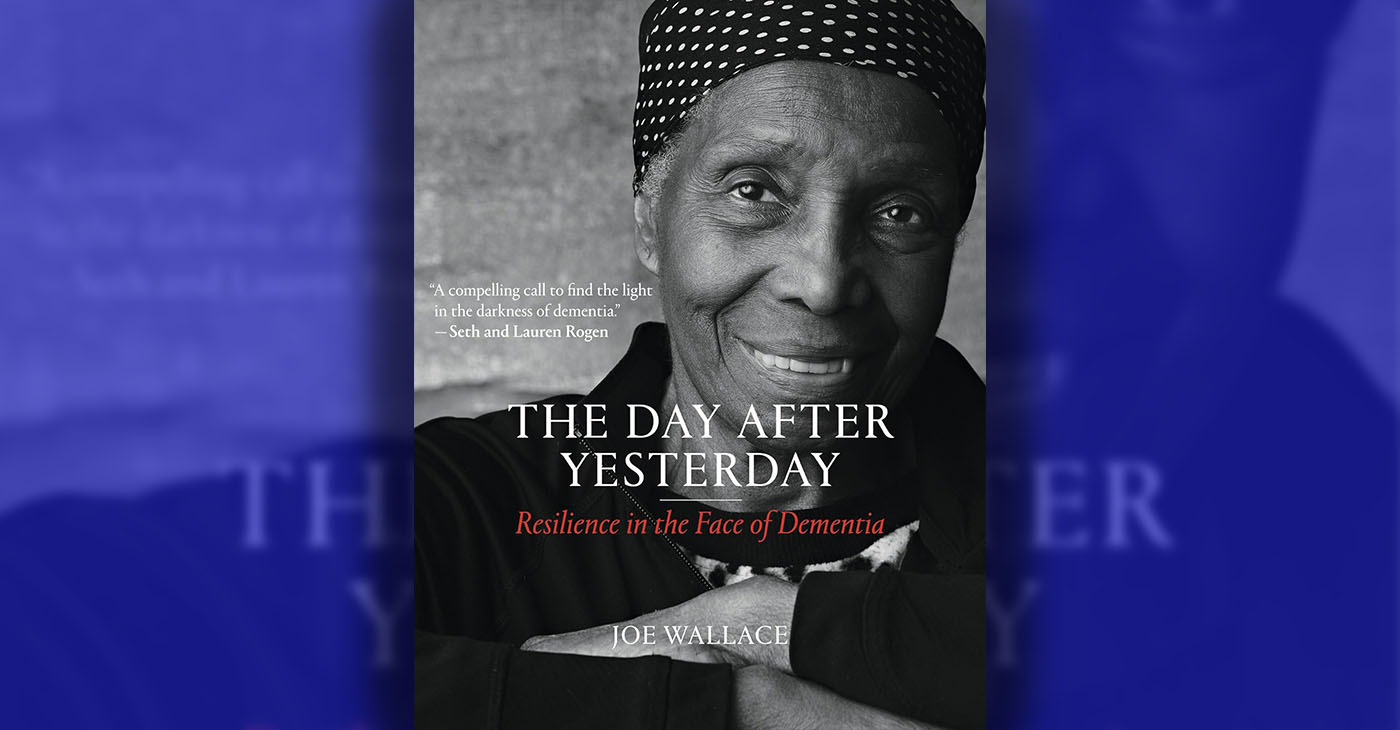
By Terri Schlichenmeyer
Sometimes, Mom talks a lot of nonsense.
She talks in random syllables, half-jokes, thoughts that come out of her mouth backwards or mixed up. You try, she laughs, you laugh, pretending that you understand but you don’t. Mom has dementia and there’s nothing that’ll fix it, but you can read “The Day After Yesterday” by Joe Wallace and change the conversation.
Talk about your awkward encounters.
Well into his twenties, Joe Wallace was asked to sit with his “Granddaddy Joe” while Wallace’s mother and grandmother ran errands. His grandfather was once a vibrant man, and he’d been Wallace’s “hero,” but Alzheimer’s had put a curtain of sorts between them, and Wallace was “so frightened to be left alone with him.”
It didn’t take long for him to realize that day that his grandfather was full of stories, and it was “magical.” He applied the same kind of patience when his grandmother began to experience dementia, too, and this spurred Wallace to tell a story of his own with his camera.
The portraits he captured eventually became an exhibit, and this book.
“In the United States,” Wallace says, “one in three seniors suffers with Alzheimer’s or another dementia at the time of their death.” Nearly $700 billion dollars annually is spent caring for people with dementia. Alzheimer’s, as one of Wallace’s subjects points out, affects Black seniors more often than it does whites. For that matter, people with dementia need not be seniors: early-onset Alzheimer’s can affect someone in their early 20s.
Listen, Wallace’s subjects almost always say, and don’t hide a diagnosis of dementia. There’s no shame in it. Reach out to others who’ve received the diagnosis. Ask for help. Watch for suicidal thoughts and depression. Ask for stories, before they’re lost, and be honest about what’s going on. You can’t change the diagnosis, but you can change your attitude toward it.
It’s called The Long Goodbye for a reason – and yet, your loved one with dementia is still on this side of the sod and you know there’s still some there there. In “The Day After Yesterday,” you’ll get a new point-of-view, for both of you.
In his introduction interview, author Joe Wallace explains how he came to understand that “we could all do so much better” for those with cognitive disabilities, including Alzheimer’s, and why eliminating fear and awkwardness is essential. Readers will be quite taken by the then-and-now pictures and by the conversations Wallace captured.
But beware: this isn’t a book on caregiving or advice-giving. It’s a delightful, heartbreaking, tearful, surprising collection of profiles of everyday people in their own words, people who go with the flow and deal with tomorrow when it comes. Yes, you’ll find advice here, but it pales in comparison to the presence that Wallace’s subjects and their families exhibit.
This powerful book is great for someone with a new dementia diagnosis; it proves that life is not over yet. It’s likewise great for a caregiver, gently ushering them toward grace.
Get “The Day After Yesterday. It’s time for a talk.
“The Day After Yesterday: Resilience in the Face of Dementia” by Joe Wallace
c.2023, The MIT Press. $34.95; 157 pages.
-

 Activism4 weeks ago
Activism4 weeks agoOakland Post: Week of March 27 – April 2, 2024
-

 #NNPA BlackPress4 weeks ago
#NNPA BlackPress4 weeks agoCOMMENTARY: D.C. Crime Bill Fails to Address Root Causes of Violence and Incarceration
-

 #NNPA BlackPress4 weeks ago
#NNPA BlackPress4 weeks agoMayor, City Council President React to May 31 Closing of Birmingham-Southern College
-

 #NNPA BlackPress4 weeks ago
#NNPA BlackPress4 weeks agoBeloved Actor and Activist Louis Cameron Gossett Jr. Dies at 87
-

 Community1 week ago
Community1 week agoFinancial Assistance Bill for Descendants of Enslaved Persons to Help Them Purchase, Own, or Maintain a Home
-

 Activism3 weeks ago
Activism3 weeks agoOakland Post: Week of April 3 – 6, 2024
-

 Business1 week ago
Business1 week agoV.P. Kamala Harris: Americans With Criminal Records Will Soon Be Eligible for SBA Loans
-

 Activism2 weeks ago
Activism2 weeks agoOakland Post: Week of April 10 – 16, 2024





